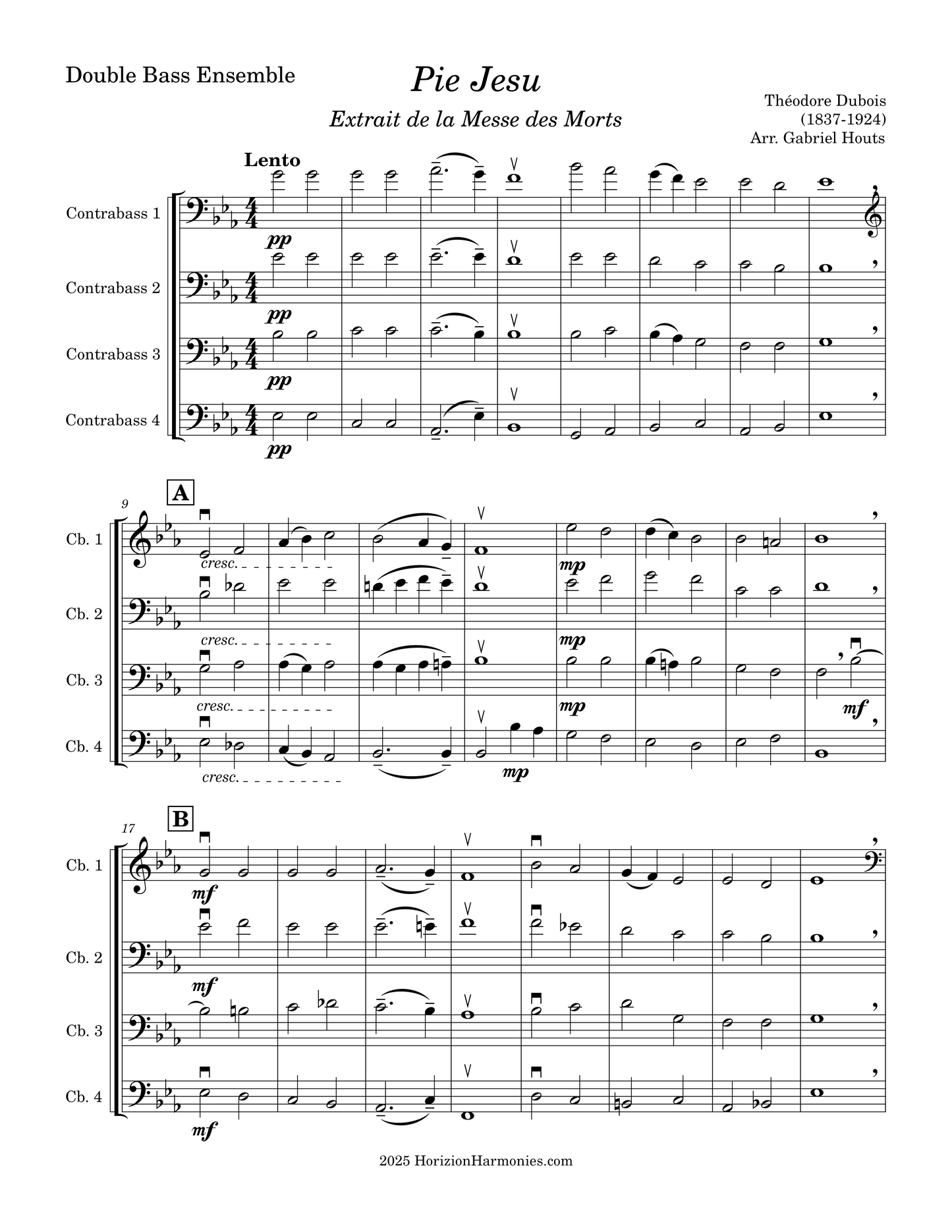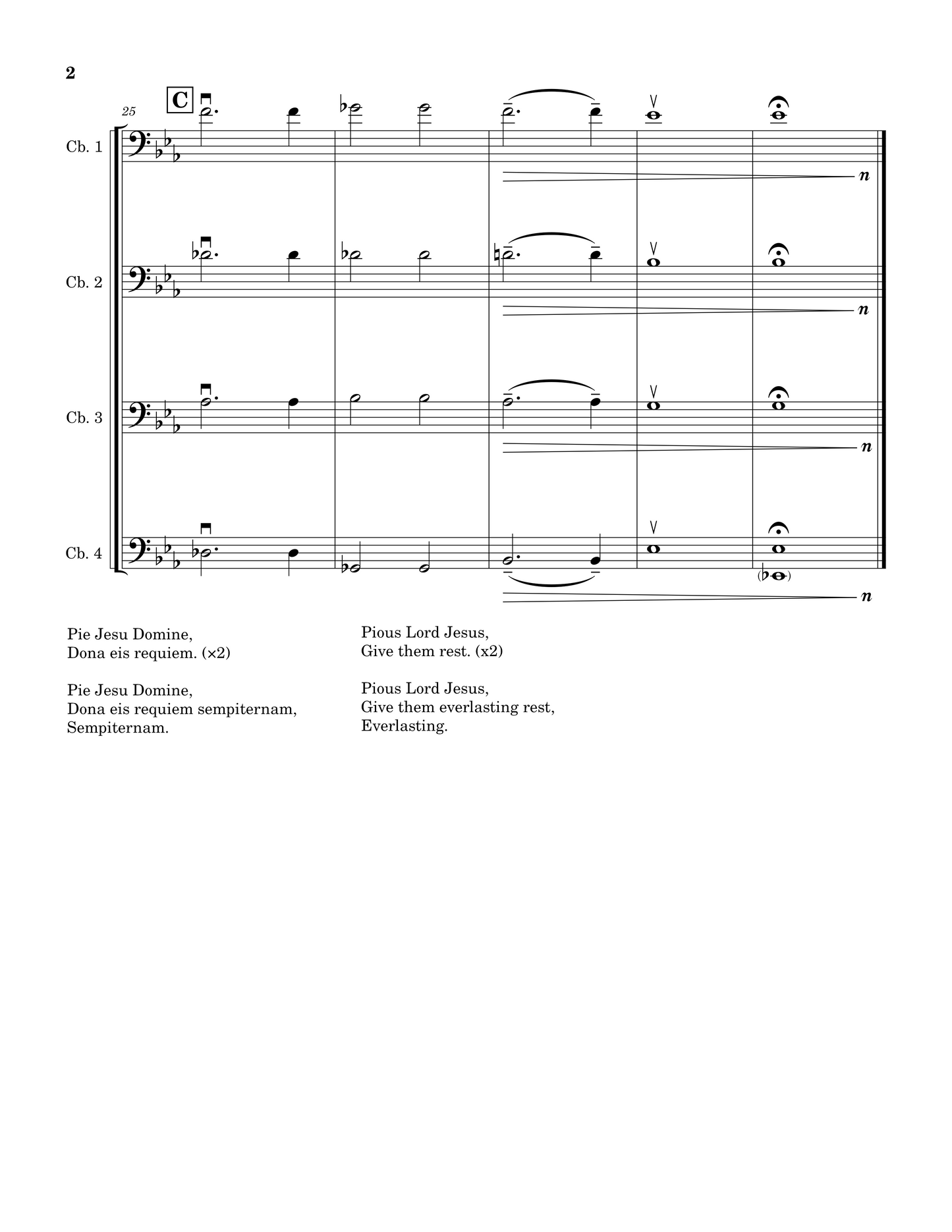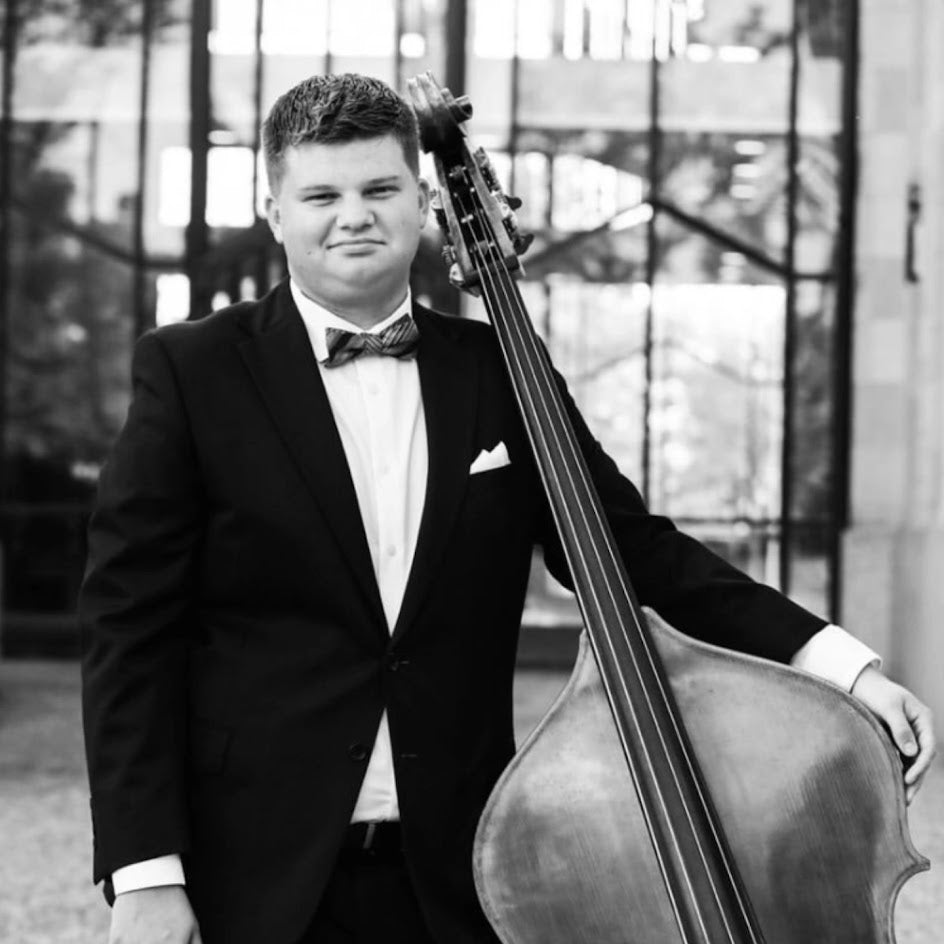Gabriel Houts
Theodore Dubois: Pie Jesu for double bass quartet (arr. Gabriel Houts)
Theodore Dubois: Pie Jesu for double bass quartet (arr. Gabriel Houts)
Couldn't load pickup availability
About the Composition
This arrangement of Pie Jesu is based on a little-known motet by the French composer Théodore Dubois, originally a movement from a requiem written around 1900. The movement takes the form of a provocative, rich chorale.
As revealed by the great grandson of the composer, the top of the original manuscript for Pie Jesu read: "To be sung quietly, but with great penitent power". I believe there is no better instrumentation to portray that quality than a double bass ensemble.
This piece was challenging to track down, as there were only two recordings ever made, and no publicly available scores. I was able to reconstruct the short motet with help from the great grandson of Théodore Dubois, as well as a very kind French conductor who produced a recording in 2019.
Being a student of the Oklahoma State University bass studio, I had the pleasure of bringing this arrangement to life with my studio colleagues, along with our teacher, Professor Glenn Dewey, in the spring of 2025.
About the Composer
Théodore Dubois was born in 1837 in Rosnay in north-eastern France. He showed great interest in music at an early age, and studied harmony, fugue and the organ at the Paris Conservatoire, where he won several prizes, culminating in the Grand Prix de Rome in 1861. From 1855 to 1858 he was organist at the Chapelle des Invalides, but on his return from Rome he took up an appointment as maître de chapelle at Sainte-Clotilde. He then occupied the same post at the Madeleine before he succeeded Camille Saint-Saëns as organist there in 1877. At the same time he taught harmony and composition at the Conservatoire and became director there from 1896 to 1905. As well as his famous Traité d’harmonie (1921), long considered a definitive work, he also wrote a variety of vocal works, both sacred and secular, and numerous orchestral and instrumental pieces. Dubois was an consciencious musician, and considered to be representative of the classical school. He died in Paris in 1924.







